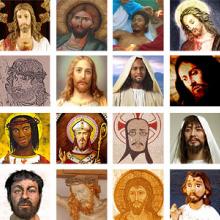prophet
I told my congregation that nine years earlier, on a cold January morning, I walked into a Planned Parenthood clinic.
Before you read further, let’s pause: What story do you think I’m about to tell? What assumptions about me or my circumstances did you make? Do you see me as someone with less moral authority than when you started reading? Take a moment to think.

Image via Juan Aunion / Shutterstock.com
Things aren’t always what they seem. Like that time God sent Amos a fruit basket. It was a tricky move — generally speaking, a fruit basket is a wonderful, cheerful gift. Strawberries, blueberries, plums — or in Amos’ case, ripe figs. Everybody loves summer fruit. It reminds us of picnics, and parks, and cookouts with friends. But when God sent Amos a fruit basket, it came with a foreboding little note that proclaimed the end of the world.

Image via Uber Images / Shutterstock.com
Was it Jesus who said, “No greater love has anyone than this, to sit through a school board meeting?”
No, actually that was me. I whispered it to my wife as we sat together for several hours at a recent meeting of our local school board. On the agenda that evening was the adoption of a proposed district-wide gender expansive policy to protect transgendered and gender non-conforming students and bring the district in line with the U.S. Department of Education's directive on Title IX and recent legal precedent.

Image via Aleksandar Todorovic / Shutterstock
The great Old Testament scholar Walter Brueggemann once observed that when you look at the Hebrew prophets, you find almost all of them were poets. Not just preachers, but poets … poets who wrote with a prophetic imagination.
Poets don’t just say more words.
They imagine the world differently.
They imagine possibilities beyond others’ imagination.
They create a new way of seeing things.
They call a new creation into being.
THE MORE I READ the story of Jonah nestled among the serious Minor Prophets of the Old Testament, the more fantastic and hilarious it gets. Everything is turned upside-down.
Jonah’s story follows Amos, who rips into rich people who “lie on beds of ivory and lounge on their couches.” It precedes Micah, whose Lord calls us “to do justice and to love kindness.” But Jonah spends his energy running away from Yahweh. In fact, Jonah is never even called a prophet in the book that bears his name. His interests and concerns are completely different from the Deity who has called him. Only entombment inside a “great fish” will drive his bedraggled, stinking self to the city that needs to repent. Even so, Jonah will perceive his surprising success as an utter failure.
But that’s getting ahead of the story. Most Hebrew prophetic books are collections of oracles unmoored to narrative, but Jonah’s tale has a setting, characters, and a plot! If you didn’t learn this in children’s Sunday school, here are the bare bones of the action:
Yahweh tells a man named Jonah to go east to the city of Nineveh to cry out against its evil. But Jonah flees in the opposite direction on a ship traveling west. A huge storm blows in, so when Jonah says it’s his fault, the sailors reluctantly throw him overboard. The storm immediately stops. A “great fish” swallows Jonah for three days and nights. Then God makes the fish vomit Jonah out on dry land.
In part two, Yahweh repeats his original imperative: Go to Nineveh and warn them of destruction. Jonah does so, expecting a fireball from heaven to burn the city to the ground. Instead, the king repents of his evil and asks all his subjects, as well as the animals, to demonstrate repentance by wearing sackcloth. So God changes God’s mind and does not destroy Nineveh. Jonah is angry because the Ninevites do not get what they deserve. He sulks under a bush God creates for him. The ensuing conversation underlines Jonah’s resistance to the merciful and loving character of Yahweh. The ending is ambiguous.
Not surprising, this whole endeavor to understand what it really means to follow Jesus in today’s world is proving to be nothing short of overwhelming. Though I’d like to start my year-long effort to live this out on New Year’s Day, I’m not entirely sure I can get my hands around this Jesus we’re talking about by then. I mean, I grew up reading Scripture, have written several books about Jesus and the Bible, but somehow I’m always left with a sense that there’s more — a lot more — about Jesus and about being a follower than we generally consider.
As part of my effort to approach the year, I’ve decided to break down various dimensions of Jesus, based both on my own reading of the Gospels (and Epistles to a lesser degree), as well as the interpretations of scholars, theologians and activists I respect. So for now, I’ve broken this down into twelve categories, so that I can focus on one per month as intently as possible. This doesn’t mean that there aren’t some other things I’ll decide to do all year long (like pray the Lord’s Prayer), or some things I’ll try once that may or may not fit within that month’s “Jesus dimension.” But when I consider the following twelve ways of looking at Jesus, it feels like a pretty comprehensive approach.
I’m also assembling a group of mentors to help me with each of the respective Jesus Dimensions below. I figure that, rather than having a dozen disciples, I could use mentors way more than followers if I have any hope of making this work.
But I’m interested in what you think. Am I missing something? Do any of these simply not ring true at all?
You don’t want God to ask you to be a prophet. You really don’t.
When God calls you to some holy task, you might expect a contemplative path, a quiet life of service, and love of neighbor. You might expect a comfortable life of piety and hopefulness, grace, and caring.
But true prophets know better.
Prophets tend not to have such idyllic hopes for God’s call. Prophets know too well that the call of God to speak hard truths is paved with difficulty. The prophet’s road is lonely not because she escapes the hubbub of everyday life in order to retreat and draw near to God. No, the prophet’s road is lonely because she is called to the most troubled corners of the world, places which existence we would rather deny or ignore. The prophet’s road is lonely because she must speak boldly to an upside-down world that doesn’t realize it is upside-down. The prophet sees the world as it really is while we see the prophet and marvel that she is walking on the ceiling.
In our readings for this week, we encounter two prophets who speak bold words to a world predisposed to ignore them. We encounter two prophets who speak a word of deliverance to the downtrodden and judgment upon the powerful. We encounter two prophets engaged with the most pressing matters of all. We encounter two prophets that we still refuse to heed.
This has been a hard winter — from Minnesota to Alabama. It’s been a very hard winter for Tanya and Red and Jamie and Andre and Adrian and Mercy. They are my neighbors here in New York City. It’s not that the heat was shut off in their apartments because they didn’t pay their bills. They have no apartments. Since last fall, they have made their beds on the steps of Riverside Church, under the scaffolding at Union Seminary and on the benches near Grant’s Tomb.
“Will you be warm enough tonight?” I asked Tanya. “Oh, we’ll be plenty warm,” she said as she showed me their outdoor bedroom: the first layer was carpeting, then stacks of blankets for padding and many more blankets for covers. “Once you’re in here,” said Red, “it’s too hot to keep your jacket on.” I was grateful to hear that because, well, then I wouldn’t feel so terrible going inside my warm apartment.
IN HIS EULOGY at Baptist pastor, civil rights activist, and author Will D. Campbell’s memorial service in late June, Campbell’s close friend, journalist John Egerton, recalled their first meeting. Campbell was wearing the broad-brimmed black hat that became his signature, with jeans and cowboy boots. At the time, Egerton noted, Campbell was in the middle of “a costume change” from the tweed jacket, clerical collar, and calabash pipe he had affected as a young, Yale-educated liberal minister.
Campbell was a notoriously theatrical figure, as famous for his hats and walking sticks as for his theological pronouncements. In fact, in the 1980s Campbell became a cartoon character in the guise of Rev. Will B. Dunn in the late Doug Marlette’s “Kudzu.” Campbell also dramatized his own life in Brother to a Dragonfly, his National Book Award-nominated 1977 memoir, and in a 1986 sequel, Forty Acres and a Goat.
Another favorite prop in the Will Campbell show was the acoustic guitar he would strum while singing his own country compositions and old favorites like “Rednecks, White Socks, and Blue Ribbon Beer.” Campbell, who was based in Nashville from 1957 on, also became a sort of chaplain to the “outlaw” element in that city’s country music industry. He traveled on Waylon Jennings’ tour bus, and Jennings’ widow, country star Jessi Colter, sang at Campbell’s memorial.
THE METRO IS crowded today, and the 20-something, well-dressed white man has to stand, one hand holding the bar and the other his smartphone. It’s the end of the day. All the commuters—but one—are turned toward home. The young man’s face, like most of the others, is dulled with exhaustion. No one makes eye contact.
In a seat near the door, one woman sits facing everyone, looking backward. She studies the young man’s face intently, uncomfortably. He shifts. She rearranges the bags at her feet. Her reflection in the window shows an ashy neck above her oversized T-shirt collar. The train hums and clicks through a tunnel. As if in preparation, she takes another sip from the beat-up plastic cup she’s holding.
At last, she raises her voice and asks: “Why are white people so mean?” Boom! The electricity of America’s third rail crackles through the train. Faces fold in like origami or turn blank like a screensaver.
But this was no rhetorical question. When no one answers, she asks again, this time aiming her question at the young man with his phone. A flush creeps up his neck. “You look like you could be a sheriff,” she says to him. “Good and mean. I can see it in your eyes. You got mean eyes.” When he realizes her attention is stuck on him, he replies, “I hope I’m not mean. I try to be good.”
"EVEN IF I OWNED Picasso's 'Guernica,' I could not hang it on a wall in my house, and although I own a recording of the Solti Chicago Symphony performance of Stravinsky's 'Rite of Spring,' I play it only rarely. One cannot live every day on the boundary of human existence in the world, and yet it is to this boundary that one is constantly brought by the parables of Jesus." So wrote a great New Testament scholar, Norman Perrin, in his book Jesus and the Language of the Kingdom. I often think about his frankness as I prepare for the transition between Epiphany and Lent. We must soften and make bearable the intensity of the scriptural story to face it every week in church. We can't dive to the depths every single week, and we are right to keep our child-friendliness going.
But we need to risk depth and passion, or run the danger of making the gospel seem boring and predictable. Our churchly betrayal of God lies in our willingness to make the Word seem banal. So perhaps the thing we need to give up for Lent is our avoidance of depth. The scriptures this month will speak to us of faith as the experience of being stressed almost to a breaking point. They will plumb the depths of divine frustration and disappointment. We must clear a space for these wounding and thrilling themes and suspend our strategies for making worship palatable and safe.
The Mormon church is lashing back at a business magazine that parodied their prophet’s mission and portrayed the church as lucratively rich but miserly with charitable donations.
A lengthy story in Bloomberg Businessweek that hits newsstands on Friday details The Church of Jesus Christ of Latter-day Saints’ vast financial holdings, from a $2 billion mall in Salt Lake City to a $1 billion ranch in Florida.
Reaction to the magazine’s cover has overshadowed the article, however. The illustration satirizes the moment when Mormons believe John the Baptist bestowed the priesthood on Joseph Smith, the faith's founding prophet.
In the parody, John the Baptist tells Smith, “and thou shalt build a shopping mall, own stock in Burger King, and open a Polynesian theme park in Hawaii that shall be largely exempt from the frustrations of tax ...” Smith answers, “Hallelujah.”
LDS church spokesman Michael Purdy said the magazine cover is “in such poor taste it is difficult to even find the words to comment on it.”
Icon of the Prophet Ezekiel via Wiki Commons, http://bit.ly/xLsxE4.
It's long been known that Ezekiel is — well, let's be honest here — one crazy-arse book of the Bible.
Now that I'm tweeting about it every day and reading it cover to cover for the Twible project, I've come to understand one of the oldest traditions about it: it's not for everyone.
Some of the great rabbis taught that the book of Ezekiel, with its strange visions and explicit sexual language, should not be read by any Torah student under the age of 30.
The symbolism of "30" was likely tied to Ezekiel's own reported age when he began receiving his prophetic visions; perhaps the rabbis felt that if Ezekiel was old enough to see these weird word-pictures, 30-something men were considered mature enough to read about them.
Not so for women.
Last weekend, I had the privilege of spending some time at the End Genocide Action Summit, which brought people from all over the world to Washington, D.C., to learn about and fight against genocide, particularly the ongoing genocide being waged by Omar al-Bashir against the people of Darfur, Sudan.
Wall Street has been devastating Main Street for some time. And when the politicians -- most of them bought by Wall Street -- say nothing, it's called "responsible economics." But when somebody, anybody, complains about people suffering and that the political deck in official Washington has been stacked in favor of Wall Street, the accusation of class warfare quickly emerges. "Just who do these people think they are," they ask. The truth is that the people screaming about class warfare this week aren't really concerned about the warfare. They're just concerned that their class -- or the class that has bought and paid for their political careers -- continues to win the war.
So where is God in all of this? Is God into class warfare? No, of course not. God really does love us all, sinners and saints alike, rich and poor, mansion dwellers and ghetto dwellers. But the God of the Bible has a special concern for the poor and is openly suspicious of the rich. And if that is not clear in the Bible nothing is.
Sojourners has always tried to understand and advocate for "biblical politics." But what does that mean now, especially as we approach another major election?
I was talking the other day to a Christian leader who has given his life to working with the poor. His approach is very grassroots -- he lives in a poor, virtually all-minority community and provides basic services for low-income people. He said, "If you work with and for the poor, you inevitably run into injustice." In other words, poverty isn't caused by accident. There are unjust systems and structures that create and perpetuate poverty and human suffering. And service alone is never enough; working to change both the attitudes and institutional arrangements that cause poverty is required.
Ten days after 9/11, Rais Bhuiyan, an immigrant from Bangladesh, was working at a gas station in Dallas, Texas when a man walked in with a gun. Thinking the store was being robbed, Bhuiyan opened the cash register
We are looking for 1,000 pastors to debunk a myth based on the political assertion that government doesn't have any responsibility to poor people. The myth is that churches and charities alone could take care of the problems of poverty -- especially if we slashed people's taxes. Both this assertion and myth contradict the biblical imperative to hold societies and rulers responsible for how they treat the poor, and ignore the Christian tradition of holding governments accountable to those in need. Faith-based organizations and government have had effective and healthy partnerships, and ultimately, the assertion and myth have more to do with libertarian political ideology, than good theology.








